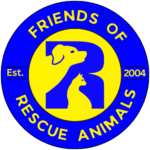A few tips on how to keep your new Shelter or Rescue cat healthy and happy.
Changes to a cat’s diet should be made gradually.
Kittens & cats need to be fed good, nutritious food regularly, at least once a day. Before bringing your new pet home check to see what type of food they were being fed. Suddenly changing from dry food, to moist / canned food, or even canned to dry food could cause an upset stomach, diarrhea or refusal to eat at all. Even sudden changes in the variety or formula of the food, such as a Lamb & Rice mix to a Meat, Poultry, and Fish mix could cause issues for your cats health. Try to bring home a small supply of food from the shelter or purchase the same brand of food, then gradually mix in small amounts of the new food you want to feed, over a period of a week (or longer as needed).
If despite all your precautions, the change in diet results in vomiting, diarrhea, or other signs of distress, talk to your veterinarian to verify that it is only a diet-related issue.
Cats also need plenty of cool, clean, fresh water available at all times. Normally adult cats do NOT need milk in their diet. Besides giving your cat diarrhea, milk gives you an extra smelly cat box to clean.
Cats do NOT need to go outside to do their business. Cats are almost always naturally housebroken and will use a litter box even at an early age. Keep your cat inside your home with you to keep them safe. Cats that are outside often get lost, hurt and sometimes get killed by cars, poisons and local wildlife.

Recent Comments